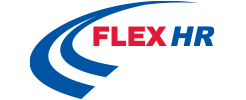From Miami to Atlanta, for Human Resources, the Big Game Hits on Super Monday

54% of professionals know someone who’s called in sick or made an excuse for skipping work the day after a major sporting event, such as the Super Bowl, NBA Finals or World Series. *
Unplanned absenteeism can lead to a problem for organizations. Productivity noticeably takes the biggest hit, but other challenges such as replacement costs and direct costs, like employee pay also take a toll on the business. Additionally, more than one-third (36 percent) of senior-level/executive leaders said they may not work their normal hours on Monday after the Super Bowl, compared to 20 percent of junior and mid-level employees who are more uncomfortable about the consequences of not showing up for work. Consequently, managers become less efficient in their day having to pick up the work of those who have taken the day off. Some companies have realized this setback and have implemented a plan of action to fill the gaps in anticipation of those employee’s that request to take Monday off. In addition to foreseeing the headcount that will potentially call out of work, other organizations are rewarding those that do show up by offering their workers donuts or bagels for breakfast that morning or even catering a pizza lunch in to encourage a lighter environment the next day.
Addressing any type of time off such as sick days, vacation days, or unpaid leave to name a few, should be appropriately outlined in the Employee Handbook. While it’s not required by law for every company to have one, it’s certainly the best way to have written documentation of specific workplace rights. Businesses that want to ensure their policies and procedures are up-to-date and in compliance, turn to HR experts, like Flex HR to review their current Handbook or create an entirely new one. A company Handbook ultimately helps safeguard your business; especially should any legal matters arise.
*Source: OfficeTeam online survey of more than 1,000 U.S. workers employed in office environments and more than 2,800 senior managers at organizations with 20 or more employees in 28 major U.S. cities.
Learn more about the of HR Team Experts that can help.
Our Flex HR specialists serve thousands of different organizations, in countless industries, varying from a few to over 75,000 employees.
To Learn More about Flex HR Contact Us.
